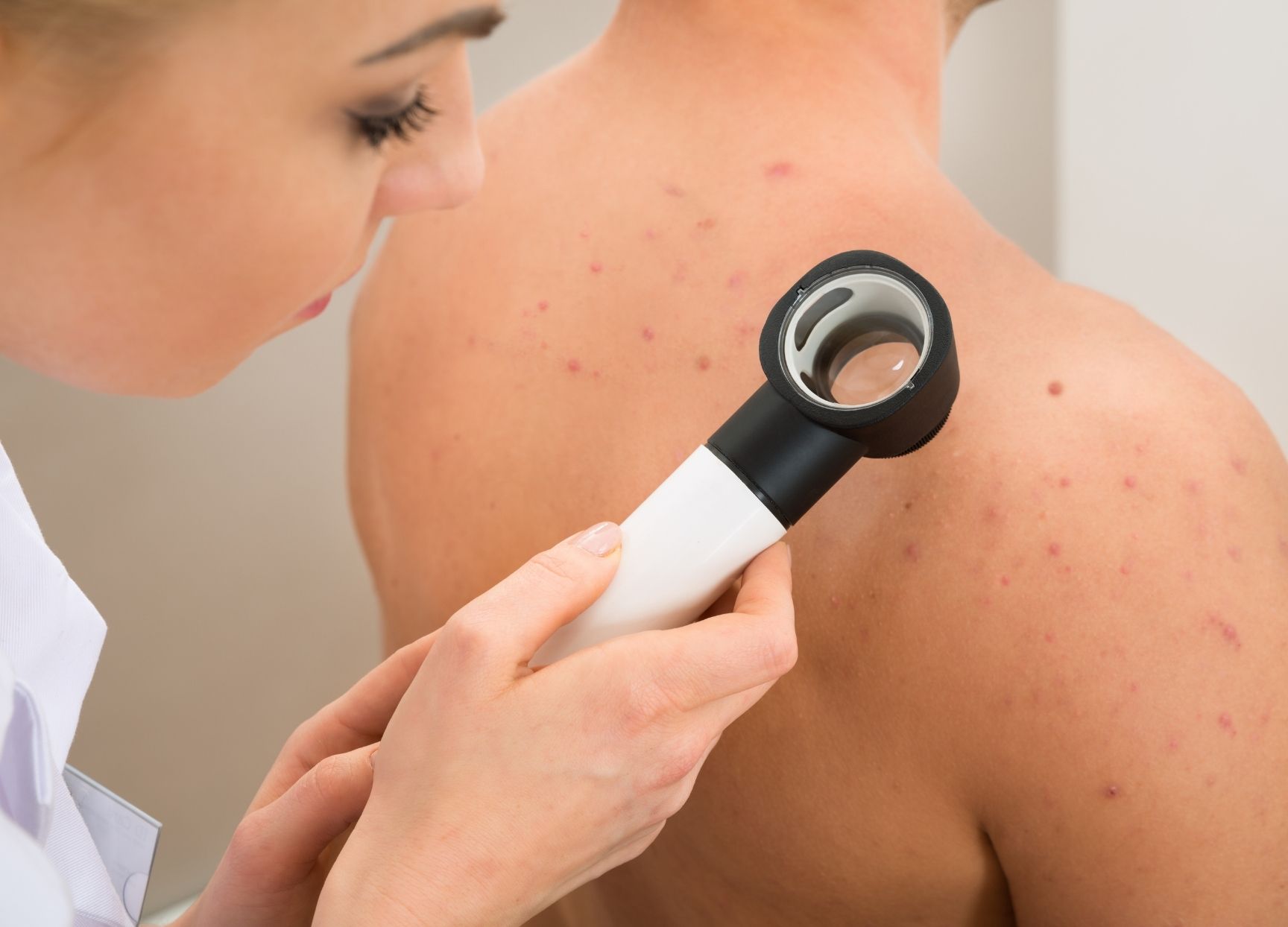Dr Suchitra Chinthapalli
Consultant Dermatologist
Specialist expertise: Adult Dermatology, General Dermatology, Dermatology, Moles, Acne, Eczema, Sun Damage, Skin Rashes, Facial Rashes, Pigmentation Disorders, Lesion Removal, Steroid Injections.
Rashes are any change we notice on our skin. Rashes can have a wide variety of symptoms and appearances; they might be localised to one area of our body or they may be covering multiple areas.

Rashes are any change we notice on our skin. Rashes can have a wide variety of symptoms and appearances; they might be localised to one area of our body (such as our hands) or they may be covering multiple areas. Rashes can come and go (over minutes/hours/weeks/months) or may remain for a long time. Some rashes and skin problems on the body may not have any symptoms, whilst others might be itchy, sore, stinging, irritating or even painful. You may see a colour change with a rash such as red, darker, or lighter than your surrounding skin. Rashes can be dry and flaky or even may wet and oozing, or the skin texture can feel normal. Some rashes cause swelling of your skin like hives (urticaria) which may move around rapidly and only last a few hours each day.
There are multiple causes of rashes and sometimes no obvious cause is found. A tendency to certain rashes or body skin problems can run in the family (hereditary) such as eczema and psoriasis. Some rashes can be triggered by allergies such as to things in the atmosphere (pollens, dusts, fragrances, something at work) or products coming into contact with our skin (allergic reactions to metals, creams/shampoo’s etc), or allergic reactions to medications we are taking (prescribed or over the counter). Some rashes and body skin problems can be triggered by other underlying illness such as infections (viral, bacterial, fungal etc), internal organ problems (liver, lung, gut, kidney, bone marrow, connective tissue), underlying nutritional problems (deficiencies), or may be triggered by hormone imbalances (problems in our blood). Some rashes are auto-immune which means our own body is attacking our own skin for some reason and this can lead to blistering rashes (pemphigoid) or rashes that can be associated with joint problems/connective tissue problems (such as lupus). Some rashes can be triggered by sunlight and heat and others might be triggered by the cold and have a seasonal pattern.
A detailed history is especially important for diagnosing rashes, this will explore every possible aspect of your skin complaint combined with a thorough clinical examination of your skin by an experienced dermatologist. Many diagnoses are made by the history and examination alone; however, we may also need to organise some investigations for you such as blood tests, skin allergy tests (skin prick tests/patch tests/light tests), swabs/skin scrapings (looking for infections), skin biopsy (for histology/microbiology) and possibly a scan or x ray.
Management options will be guided entirely by the diagnosis, and that is why getting the right diagnosis is crucial to managing skin conditions quickly and effectively. Dermatologists have a wide range of treatment options available for patients with rashes including cream treatments (topical), light therapy, tablets, and injections.
Currently selected day
Available consultations
Causes
Eczema, psoriasis, allergies, infections, intern...
Tests
Blood tests, skin biopsy, skin prick tests/patch...
Treatment
Lightterapy, cream, injection, tablets
Our consultants, who are all either heads of service at London teaching hospitals, or have played major roles in clinical innovation, employ their collective expertise, knowledge and deep experience to deliver the best care possible.